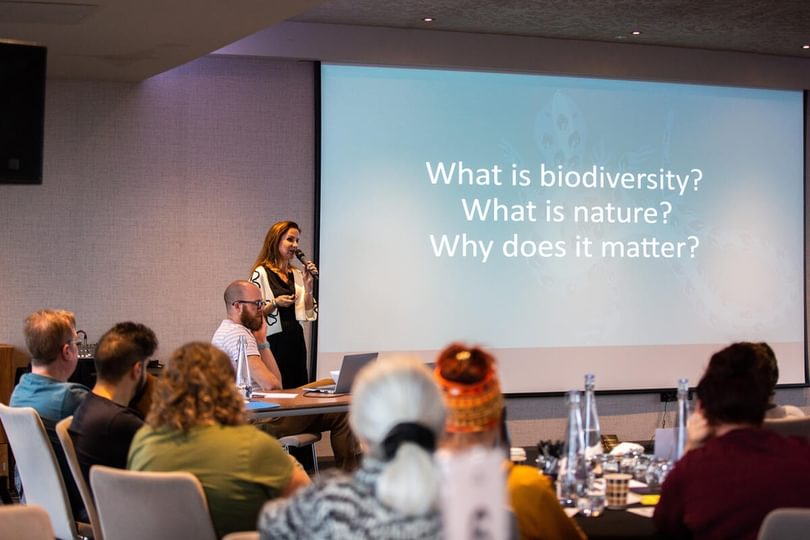
The first ever UK-wide citizens’ assembly for nature has today published its recommendations for renewing and protecting our natural environment, calling for urgent and immediate action from every part of society.
Over the course of four weekends between November and February, assembly members listened to evidence on UK nature restoration, food systems, mental health, access to nature, fishing and agriculture. They heard from a range of world-leading experts, including Professor Nathalie Seddon a Director of the Oxford Martin Programme on Biodiversity and Society and Director of the Agile Initiative, farmers, supermarkets, local authorities and water companies, and shared a range of viewpoints.
The assembly now hopes to create a groundswell of support and is calling for people to back the People’s Plan for Nature by adding their voice at peoplesplanfornature.org. Governments, businesses, communities and charities are also being urged to respond to the recommendations to deliver transformative change.
Among the top calls to action in The People’s Plan for Nature are:
- All commercial and policy decisions to take into account potential impacts on nature
- An overhaul of current farming subsidy systems to prioritise sustainable and nature friendly farming
- Greater government accountability through a permanent Assembly for Nature made up of NGOs, industry and public expertise It also has further
![block.image[0].title](https://oms-www.transforms.svdcdn.com/production/images/WW1273450.jpg?w=250&h=166&q=90&auto=format&fit=crop&dm=1679500033&s=7b234ab38cb89fbfcf14ae0f2c4757f0)
An illustration by Graham Romieu, an author and illustrator based in Toronto, Canada, aiming to bring to life some of the key thoughts and ideas that were shared by the public.
Professor Nathalie Seddon was one of the two academic leads for the People’s Assembly, advising on the scientific evidence presented to the People’s Assembly and ensuring that it was balanced, accurate and include perspectives from across all four nations. This provided the crucial context to the work of the People’s Assembly within wider debates on biodiversity loss and climate change.
She said, “The People’s Plan for Nature is a roadmap to help us get from where we are now, living in a highly degraded nature-depleted country, to where we need to be, empowered and living as part of flourishing landscapes, seascapes and cities, healthier, happier and re-connected with nature.
“I was impressed by the rigour of the process, the spirit of collaboration and openness among a very diverse group of Assembly members, and the quality of their discussions and questions. I think that the Assembly has come up with a really compelling set of critical actions to restore the vitality of our environment.
“The experience left me feeling hopeful for the future of UK nature as well as for nature in general; there’s a good chance that if we get things right here, other places will be inspired to do the same.”
Daniel, a 33-year-old project manager for a research institution from Norwich, who took part in the assembly, said, “The People’s Plan for Nature must inject urgency from policy makers, businesses, local government, individuals, and communities to do much more to renew nature, as collective action is now our only hope to improve biodiversity in the UK.”
Claire, from Northern Ireland, said, “I'm not into nature for nature’s sake. I'm a doctor. I care about people. And the scientific information and the courses that I've done have shown me how important nature is for people's health. I’d like to see nature improved so that it would improve our lives.”
The citizens’ assembly was run independently by Involve, an organisation that develops new ways to involve people in decisions that affect their lives, and the Sortition Foundation, who specialise in selecting participants to take part in these kinds of events. It was convened by the National Trust, the RSPB and WWF to give the public a clear say on how to solve the nature crisis.